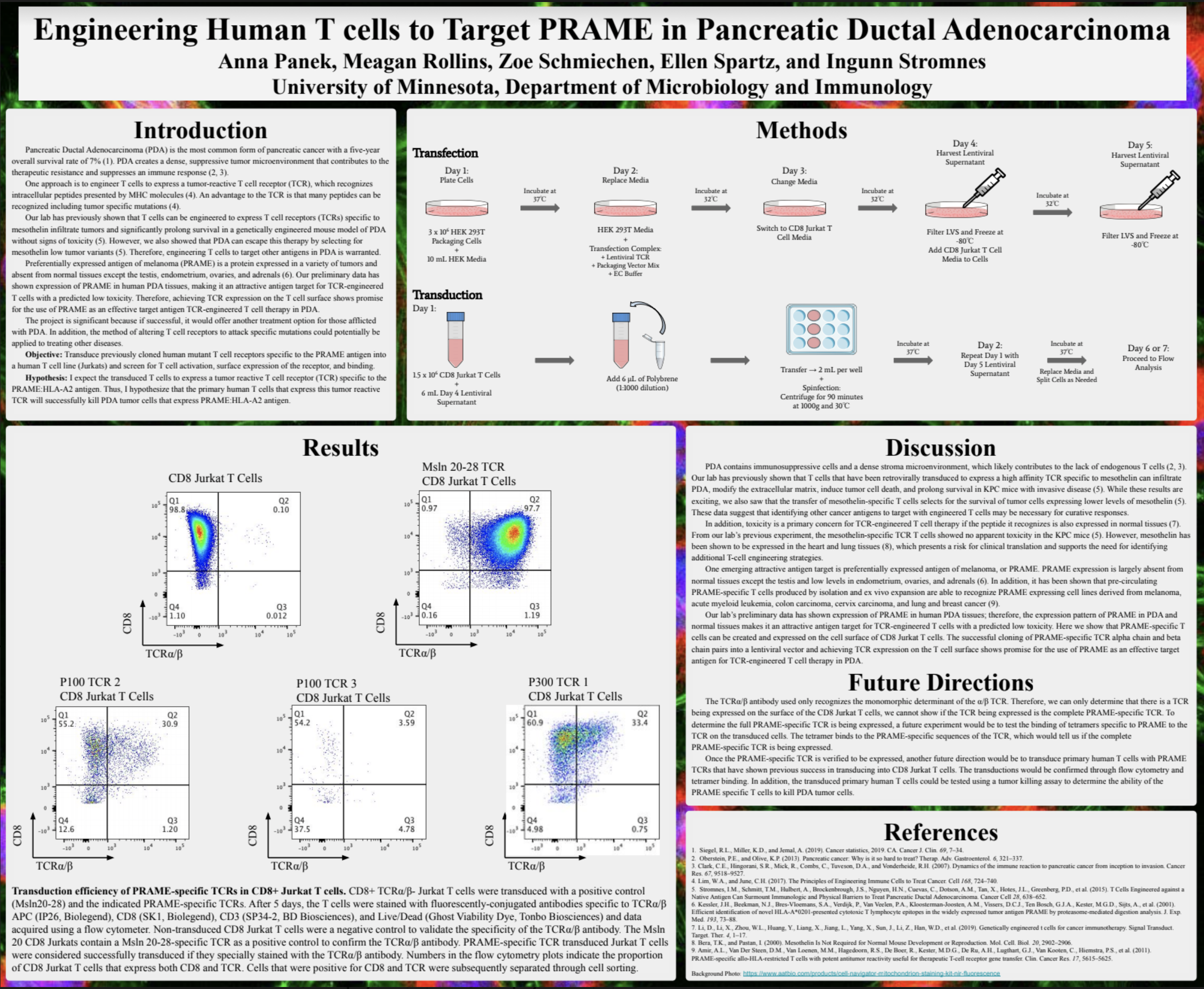Engineering Human T cells to Target PRAME in Pancreatic Ductal Adenocarcinoma
Pancreatic Ductal Adenocarcinoma (PDA) is the most common form of pancreatic cancer with a five-year overall survival rate of 7% (Siegel et al., 2019). Often detected too late for surgery, the current standard of care is combination chemotherapy, which prolongs life 2-3 months (Chand et al., 2016). PDA creates a dense, suppressive tumor microenvironment that contributes to therapeutic resistance and suppresses an immune response (Oberstein and Olive, 2013; Clark et al., 2007). Our lab previously demonstrated that T cells can be engineered to express T cell receptors (TCRs) specific to mesothelin infiltrate tumors and significantly prolong survival in a genetically engineered mouse model of PDA without signs of toxicity (Stromnes et al., 2015). However, we also showed that PDA can escape therapy by selecting for mesothelin low tumor variants (Stromnes et al., 2015). Therefore, engineering T cells to target other antigens in PDA is warranted. Here we show that PRAME-specific TCRs can be created and expressed on the cell surface of CD8 Jurkat T cells. PRAME is a protein expressed in a variety of tumors and absent from normal tissues except the testis, endometrium, ovaries, and adrenals (Kessler et al., 2001). Our lab’s preliminary data has shown expression of PRAME in human PDA tissues, making it an attractive antigen target for TCR-engineered T cells with a predicted low toxicity. Therefore, achieving TCR expression on the T cell surface shows promise for the use of PRAME as an effective target antigen TCR-engineered T cell therapy in PDA.
